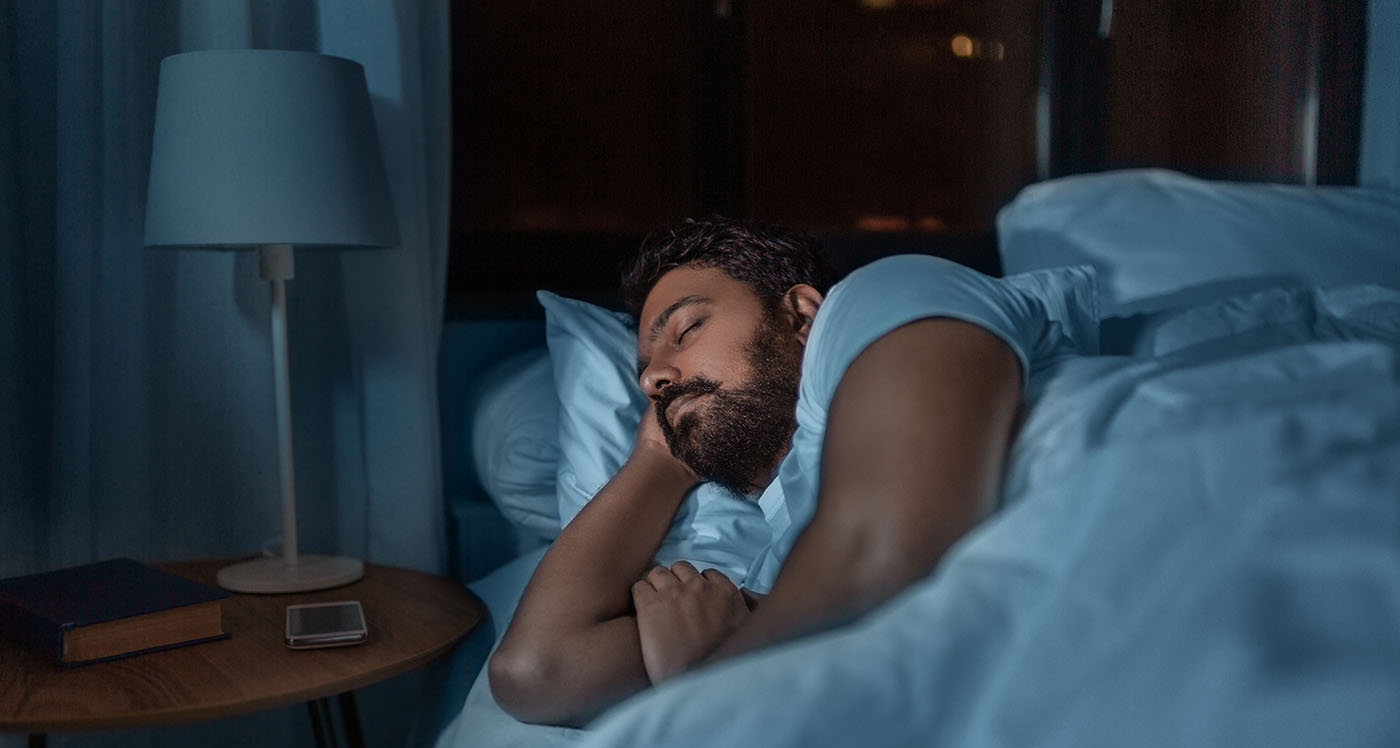
Sleep is often referred to as the “ultimate beauty treatment,” and for good reason. Beyond its restorative benefits for the body and mind, sleep plays a crucial role in maintaining healthy skin. As we slumber, our bodies undergo a series of important processes that repair and rejuvenate our skin cells, helping to keep our complexion clear and radiant.
In this blog post, we’ll explore the fascinating connection between sleep and skin health, focusing specifically on how establishing healthy bedtime habits can help prevent acne breakouts. From understanding the impact of sleep on skin conditions to practical tips for optimizing your sleep environment, we’ll delve into everything you need to know to unlock the acne-fighting potential of a good night’s rest.
So, grab your favourite cosy blanket, brew a soothing cup of green tea, and join us as we embark on a journey to discover the transformative power of sleep for clearer, healthier skin.
The Relationship Between Sleep and Skin Health
Quality sleep is essential for maintaining optimal overall health, and this includes skin health. During sleep, our bodies enter into a state of repair and regeneration, allowing for the renewal of skin cells and the repair of damaged tissues. Here’s a closer look at how sleep impacts skin health:
- Cellular Repair: While we sleep, our bodies produce higher levels of growth hormone, which stimulates cell regeneration. This process helps to repair damage caused by environmental stressors like UV radiation and pollution, contributing to healthier, more resilient skin.
- Collagen Production: Adequate sleep is crucial for collagen production, a protein that provides structure and elasticity to the skin. Collagen production peaks during sleep, helping to maintain skin firmness and reduce the appearance of fine lines and wrinkles.
- Inflammation Reduction: Chronic sleep deprivation can lead to increased levels of inflammation in the body, which can exacerbate skin conditions like acne, eczema, and psoriasis. Getting enough sleep helps to regulate inflammatory responses, promoting calmer, clearer skin.
- Blood Circulation: During sleep, blood flow to the skin increases, delivering essential nutrients and oxygen to skin cells. This enhanced circulation supports the skin’s natural healing processes, promoting a brighter, more radiant complexion.
- Hormonal Balance: Sleep plays a crucial role in regulating hormone levels, including those that impact skin health. Hormonal imbalances can contribute to acne flare-ups, so prioritizing quality sleep can help keep hormones in check and reduce the risk of breakouts.
Understanding the intricate relationship between sleep and skin health highlights the importance of prioritizing restful sleep as part of your skincare routine. By adopting healthy sleep habits, you can support your skin’s natural rejuvenation processes and achieve a clearer, more luminous complexion.
Importance of Establishing Healthy Sleep Habits
Establishing healthy sleep habits, also known as sleep hygiene, is essential for ensuring restorative and rejuvenating sleep. Here’s why cultivating good sleep practices is crucial for overall health and clear skin wellness:
- Consistent Sleep Schedule: Maintaining a regular sleep schedule, where you go to bed and wake up at the same time every day, helps regulate your body’s internal clock. This consistency promotes better sleep quality and ensures that your skin benefits from the full restorative effects of sleep.
- Optimal Sleep Environment: Creating a conducive sleep environment can significantly impact the quality of your sleep. Keep your bedroom cool, dark, and quiet to promote relaxation and minimise disruptions during the night. Investing in a comfortable mattress and pillows can also enhance your sleep comfort.
- Limiting Screen Time: Exposure to screens emitting blue light, such as smartphones, tablets, and computers, can interfere with your body’s natural sleep-wake cycle. Aim to limit screen time before bedtime and consider using blue light filters on your devices to reduce the impact on your sleep quality.
- Mindful Stress Management: Stress and anxiety can disrupt sleep patterns and negatively affect skin health. Practice relaxation techniques like deep breathing, meditation, or gentle yoga before bedtime to help calm your mind and promote better sleep. Additionally, incorporating stress-reducing activities into your daily routine can have a positive impact on both sleep and skin.
- Healthy Lifestyle Choices: Engaging in regular physical activity, maintaining a balanced diet, and limiting caffeine and alcohol intake can all contribute to better sleep quality. These lifestyle factors support overall health and can positively influence your skin’s appearance and vitality.
Prioritizing healthy sleep habits not only improves your overall well-being but also enhances skin health by allowing your skin to undergo essential repair and renewal processes during sleep. By adopting these practices, you can optimize your sleep quality and wake up to a refreshed complexion every day.
Bedtime Skincare Routine for Acne Prevention and Clear Skin
A consistent bedtime skincare routine is essential for maintaining clear and healthy skin, especially for those prone to acne. Here’s how you can tailor your nighttime skincare regimen to prevent acne and promote skin health:
- Gentle Cleansing: Start your bedtime routine by gently cleansing your face to remove dirt, oil, and impurities that can clog pores and contribute to acne breakouts. Use a mild, non-comedogenic cleanser suitable for your skin type to avoid stripping the skin of its natural oils.
- Exfoliation (Optional): If your skin tolerates it well, consider incorporating an exfoliating treatment into your nighttime routine to help slough off dead skin cells and unclog pores. Opt for a gentle chemical exfoliant containing ingredients like salicylic acid or glycolic acid to prevent irritation and inflammation.
- Spot Treatment: Apply a targeted spot treatment, such as Nanorev Acne Treatment Cream, to any active breakouts or areas prone to acne. Our advanced formula is enriched with natural ingredients that help reduce redness, inflammation, and blemishes while promoting clearer, healthier-looking skin.
- Hydration: Follow up with a lightweight, non-comedogenic moisturiser to hydrate and nourish the skin without clogging pores. Look for moisturizers formulated with ingredients like hyaluronic acid or ceramides to help maintain the skin’s natural moisture barrier.
- Protective Bedtime Mask: Once or twice a week, treat your skin to a hydrating or clarifying face mask before bed to replenish moisture and address specific skin concerns. Choose a mask formulated with ingredients like hyaluronic acid, kaolin clay, or tea tree oil to support skin health and prevent acne breakouts.
By following a consistent bedtime skincare routine tailored to your skin’s needs, you can effectively prevent acne breakouts and promote clearer, healthier-looking skin. Incorporating products like Nanorev Eczema Treatment Cream into your regimen can help target acne at its source, providing relief and support for acne-prone skin.
Other Lifestyle Factors Impacting Sleep and Skin Health
In addition to establishing a bedtime skincare routine and practicing good sleep hygiene, several other lifestyle factors can impact both sleep quality and skin health. Here are some key considerations to keep in mind:
- Stress Management: Chronic stress can disrupt sleep patterns and trigger skin issues like acne breakouts and flare-ups. Incorporate stress-reduction techniques into your daily routine, such as meditation, deep breathing exercises, yoga, or spending time in nature, to promote relaxation and improve sleep quality.
- Diet and Nutrition: What you eat can significantly impact your sleep quality and skin health. Avoid consuming caffeine, heavy meals, and sugary snacks close to bedtime, as these can interfere with sleep. Instead, opt for a balanced diet rich in whole foods, fruits, vegetables, lean proteins, and healthy fats to support overall health and skin vitality.
- Physical Activity: Regular exercise can improve sleep quality and promote healthy skin by reducing stress levels and increasing circulation. Aim for at least 30 minutes of moderate to vigorous exercise most days of the week, but avoid intense workouts close to bedtime, as they may interfere with your ability to fall asleep.
- Hydration: Proper hydration is essential for overall health and skin hydration. Drink an adequate amount of water throughout the day to stay hydrated, but be mindful of your fluid intake in the hours leading up to bedtime to minimize nighttime awakenings to use the bathroom.
- Environmental Factors: Create a sleep-friendly environment by keeping your bedroom cool, dark, and quiet. Invest in a comfortable mattress and pillows that provide adequate support and promote restful sleep. Additionally, consider using a white noise machine or earplugs to block out any disruptive noises that may interfere with sleep.
- Screen Time: Limit exposure to screens, such as smartphones, tablets, and computers, in the hour before bedtime, as the blue light emitted by these devices can suppress the production of melatonin, the hormone that regulates sleep-wake cycles. Instead, engage in relaxing activities like reading or listening to calming music to prepare your mind and body for sleep.
By addressing these lifestyle factors and adopting healthy habits, you can optimize both your sleep quality and skin health, leading to clearer, more radiant skin and improved overall well-being. Remember to be patient and consistent with your efforts, as positive changes may take time to manifest but can yield significant long-term benefits.
Conclusion
In conclusion, prioritizing healthy sleep habits is not only crucial for overall well-being but also plays a significant role in maintaining clear, healthy skin. By understanding the intricate relationship between sleep and skin health and implementing strategies to improve sleep quality, you can effectively prevent acne breakouts and promote a radiant complexion.
Remember to establish a consistent bedtime routine, create a relaxing sleep environment, and address any underlying lifestyle factors that may be impacting your sleep and skin health. Incorporating a bedtime skincare routine, such as using Nanorev’s Sensitive Skin Cream, can further support your efforts in preventing acne and achieving glowing skin.
By making sleep a priority and adopting healthy lifestyle habits, you can sleep your way to clearer, more beautiful skin and enjoy the numerous benefits of restful, rejuvenating sleep for overall health and well-being. Here’s to better sleep, brighter mornings, and healthier skin!
Let us know which topics you would like to explore further in future blog posts, and don’t hesitate to reach out if you have any questions or concerns. Thank you for joining us on this journey to better sleep and clearer skin!


